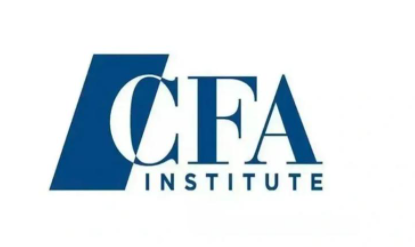In the financial industry, there is a qualification called "financial gold certificate", namely CFA (Chartered Financial Analyst). Whether in investment banks, asset management companies, securities, funds, consulting and other institutions, CFA is an international standard for measuring employees' professional ability, professional ethics and industry knowledge.
What is the CFA certificate? Why is it so precious? What are the conditions for obtaining CFA? Who is suitable to take the exam? This article will give you a comprehensive understanding of the value of the CFA certificate and the industry logic behind it.
1. Basic definition of CFA certificate
CFA is an international financial certification issued by the CFA Institute of the United States. Its history can be traced back to 1963 and has a history of more than 60 years. It is mainly aimed at practitioners in the field of financial investment, and evaluates the comprehensive ability of certificate holders in investment analysis, asset management, ethics, financial reporting, financial modeling, economics, etc.
The purpose of the CFA Institute is to "improve the level of investment expertise and promote the ethical development of the financial industry." The CFA certification is widely recognized worldwide, especially in financial institutions in the United States, China, the United Kingdom, Hong Kong and Singapore.
2. Structure and examination content of CFA certificate
CFA certification is divided into three levels (Level 1, Level 2 and Level 3), and the content and difficulty of each level are progressive, covering the core knowledge of the investment field.
Level 1: Basic knowledge and investment tools
Exam content includes: ethics and professional standards, quantitative analysis, economics, financial statement analysis, corporate finance, investment tool foundation, etc.
Pay attention to the understanding of theories and concepts.
Level 2: Asset evaluation and analysis ability.
More in-depth securities analysis, fixed income investment, stock valuation, comprehensive analysis of financial statements, etc.
The focus is on the application and analysis ability of investment tools.
Level 3: Project portfolio management and practice
Focus on practical operations such as asset allocation, portfolio construction, risk management and portfolio performance evaluation.
Closer to the actual requirements of investment managers and executives.
Each level of the exam usually takes about 300 hours of preparation time, and the pass rate is relatively low, which requires a high degree of self-discipline and professionalism.
III. What is the value of the CFA certificate?
1. High global recognition
The CFA certification is recognized in more than 165 countries and regions around the world and is an important standard for financial institutions to measure the level of talent. International investment banks (such as Goldman Sachs and Morgan Stanley), asset management companies (such as BlackRock and Fidelity) and the Big Four accounting firms attach great importance to and give priority to certificate holders.
2. Strong workplace competitiveness and great salary potential.
According to surveys by the CFA Institute and third-party institutions:
The average annual salary of certificate holders is more than 30% higher than that of non-certificate holders;
CFA is an important qualification for promotion and high salary for investment analysts, fund managers, chief information officers and FOF managers.
In China's first-tier cities, the annual salary of CFA holders is mostly between 300,000 and 800,000 yuan, and the annual salary of top investment banks or private equity funds can reach more than 1 million yuan.
3. Wide coverage and many application areas.
The CFA certificate covers a wide range of positions, including:
Investment analysts, stock/bond researchers;
Asset management consultants, fund managers;
Investment banking analysts, M&A consultants;
Financial product designers and family wealth advisors;
Risk control, compliance, auditing and other financial support positions.
Whether you are engaged in front-end investment and financing, or mid- and back-end risk control and compliance, as long as you are in the financial field, CFA can provide you with knowledge and opportunity support.
IV. CFA exam registration conditions and process
1. Registration conditions
Education requirements: Bachelor or associate degree can apply for level 1;
Work experience: If you do not have a bachelor's degree, you must have 4,000 hours of professional work experience;
English level: CFA is an all-English exam, and you must have strong English reading and comprehension skills.
2. Exam time
The CFA exam is held several times a year. Currently, it is a computer-based exam. The level 1 exam is held several times throughout the year, and the level 2 and level 3 exams are scheduled once or twice a year.
3. Exam fee
The exam fee for the entire CFA certification (including three levels) is about US$6,000-10,000, depending on the registration time and exchange rate fluctuations. Although the cost is high, it is still cost-effective compared to traditional financial education channels such as MBA.
5. Who is the CFA certificate suitable for?
Newcomers to the financial industry: undergraduates or graduate students who want to enter the fields of securities, funds, investment banking and asset management;
In-service employees: have certain experience and hope to improve their professional background and international qualifications;
Cross-industry transformation: people who originally worked in technology, consulting, auditing and other industries and hope to switch to financial analysis or investment;
Applicants for studying abroad: CFA can be used as a powerful supplement to applying for financial graduate students and MBAs to improve admission competitiveness.
CFA is a highly challenging, widely recognized and high-value financial qualification certification. It is not only a certificate, but also an important passport to enter high-end financial positions. For those who are eager to show their talents on the global financial stage, CFA is a long-term and strategic career investment. Whether you are a financial novice or an industry veteran who wants to break through the bottleneck, CFA can help you go further.
